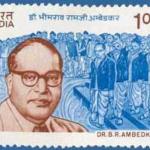In the video below, from his teachings in Ladakh on August 1, 2017 the Dalai Lama states:
I feel, that some of these lama institutions [have] some sort of influence of feudal system. That is out of date. It must end. So with some feudal influence, then eventually the lama institution creates lama politics [laughing].
So, that is very bad.
Lama politics… Lama individual disgrace, doesn’t matter. But very bad impression about monastery or monk – very bad. So we must pay more attention.
You should not say, “oh this is my guru, whatever the guru says I must follow” – that is totally wrong. The Buddha himself mentioned, “my teachings, you must examine.”
Similarly, if one particular lama says something, you examine: whether this go well with the Buddha’s teachings or the circumstances of society, then you must follow.
If the lama says something, and you investigate, is not proper, then you should not follow the lama’s teaching. Even the Dalai Lama’s teaching: if you find some contradiction, then you should not follow: that is my teaching.
He then quotes [my favorite Tibetan philosopher] Tsongkhapa. The audio is quiet and muffled as his translator gives the English, but my guess is that it follows the same reasoning as the above. Buddhism from India and then Tibet consistently emphasizes the importance of responsibility and understanding one’s own intentions as the root of its ethical system.
Watch here:
From Lion’s Roar:
In a talk last week, the Dalai Lama addressed recent allegations of misconduct in Buddhist communities. In July, famed Tibetan Buddhist teacher Sogyal Rinpoche was accused of longstanding abuse of many students. In response, Sogyal said he would be “taking a step back” from teaching. The Dalai Lama addressed Sogyal Rinpoche in his talk, saying “Sogyal Rinpoche, my very good friend. Now he is disgraced.”
..
When misconduct occurs, the Dalai Lama advised, Buddhists should make the misconduct known. “These people do not follow Buddhist advice, Buddhist teachings. Only thing you can do is make public — through newspaper, through radio. Make public.”
Past documentation of Sogyal’s abuses can be found in 2011 in the UK newspaper, the Guardian here:
The allegations raise a wider question: why are victims of sexual exploitation by charismatic religious leaders reluctant to denounce their abusers? In the Canadian documentary, Mimi highlights the Stockholm syndrome – a term used to describe the paradoxical reactions of individuals who bond with their abusers. “The person beating us, she says, “is also the only one giving us affection – and food and a roof over our heads.”
The author, Mary Finnegan writes there that:
In my personal experience, there are two taboos in Buddhist organisations, both of which have merit and both of which can be used as manipulative tools. One of them is an injunction against gossip – useful when trying to establish a calm mental state, but also useful to prevent the circulation of critical comment.
The second is samaya – the bond of loyalty that is one of the key tenets of Tibetan Buddhism. It supports the relationship between teacher and neophyte, but it can be deployed unscrupulously as a threat – break your samaya and attract dire consequences to yourself and your loved ones.
She concludes by saying that there is a cultural taboo against criticizing high lamas, one that even the Dalai Lama is bound by. Well, it seems that at last, with Sogyal, this is no longer the case. We can hope that others follow suit. As the Dalai Lama stated, if students publicize disgraced lamas publicly, the disgrace is the teacher’s alone. If students and followers become unreasonably defensive, rally behind feudal structures and rules, and lash out against victims and those who publicize wrongdoing, then the whole monastic institution suffers.
Support independent coverage of Buddhism by joining a community of fellow learners/practitioners at Patreon.
‘Like’ American Buddhist Perspectives on facebook.












